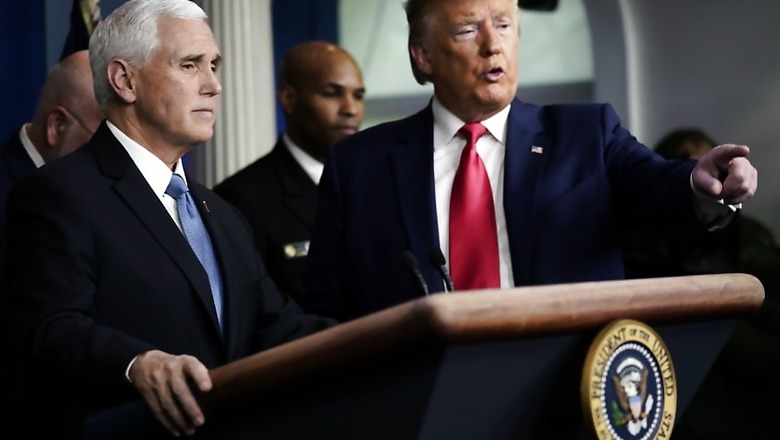
views
Nueva York: Thousands of doors were to be knocked on, but just a few days into the start of the US census, the coronavirus pandemic has halted field operations -- threatening the crucial count that is conducted every ten years.
Census workers had only just begun pounding the streets to inform residents of the importance of filling out the census questionnaire when the fast-spreading epidemic led to the virtual lockdown of America's cities.
There are fears the outbreak that has killed more than 12,500 people worldwide will put the results of the costly census -- which requires years of preparation -- into jeopardy.
The mammoth count, which began March 12, is crucial for determining how billions of dollars of federal funds are allocated and for deciding how many representatives each state gets in Congress.
This week, the Census Bureau suspended all its field operations until April 1, to avoid human contact, and said it is considering postponing the census's final date of July 31.
"That date can and will be adjusted if necessary as the situation evolves in order to achieve a complete and accurate count," it said in a statement.
For the first time, the census -- which was last conducted on 2010 -- can be completed online, as well as by phone or email.
But face-to-face contact is required to count about a quarter of the US population of 327 million, according to census expert Terri Ann Lowenthal.
"This is a very serious challenge to an already challenged census," Lowenthal told AFP, referring to the suspension of the fieldwork.
Other challenges include holding the count during a noisy election campaign and the government's attempt to include a citizenship question, which the Supreme Court struck down, she said.
Thousands of census workers will be required to count people living on the streets and in shelters, migrant workers, nursing home residents and those who live in mobile homes: anyone who may not have received the form in the mail.
They will also have to knock at non-responding addresses, which usually comprise around ten percent of the population.
"They might have difficulty retaining enough census takers who are willing to knock on doors, if the spread of the virus doesn't slow down," said Lowenthal.
New York City has spent $40 million on an information campaign to help count all its residents, which include more than 500,000 undocumented immigrants.
Many of them fear their data will be used by Donald Trump's anti-immigrant administration to deport them.
Douglas Carrasquel, a 43-year-old Venezuelan, works for Make the Road New York (MRNY) -- one of 155 community organizations hired by the mayor -- for the information campaign.
He calls about 200 people a day to encourage them to fill out the census.
"I explain to you what is at stake: our hospitals, schools, streets, everything!" he told AFP during a census training workshop, the day before offices closed due to the coronavirus.
Antonio Alarcon, who is coordinating MRNY's census work, says the biggest challenge initially was getting immigrants without papers to participate, but now "the coronavirus adds another hurdle.
"Your emotions, your charisma are not conveyed the same way in person as on the phone," he explained during the workshop in the borough of Queens.
MRNY was due to visit 25,000 addresses across Queens, Brooklyn and Staten Island to explain to people that the census has only 10 questions and that they can answer in 13 languages.
Crucially, workers were to tell immigrants that it does not matter if they are legal residents, and that they should include children, which many often skip.
The pandemic "will affect the results, unfortunately," said Alarcon, who, like several representatives of Congress and other organizations, hopes the deadline for completing the census will be postponed.
But Lowenthal cautions that it's "too early" to decide whether the count should be extended.
"We do not have a crystal ball to see how the virus will evolve in different communities across the country," she said.




















Comments
0 comment